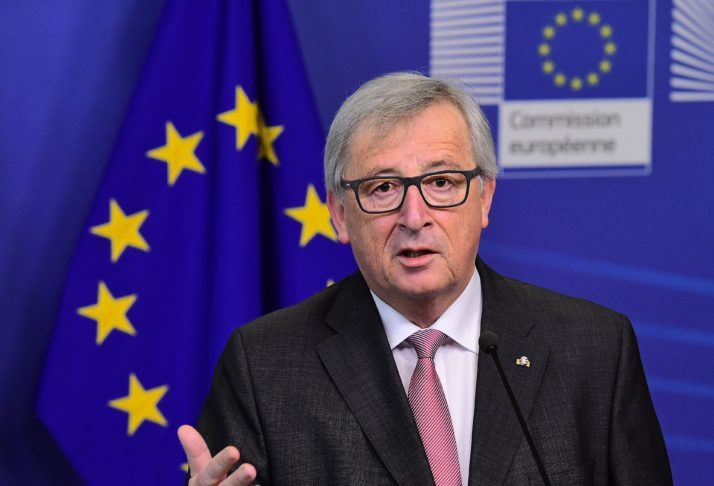Mixed Signals Reveal Split, Confusion in EU Over Turkey
Contradictory signs and remarks reveal deepening split within EU over Turkey’s accession to the union as Bulgaria presses for better ties with Ankara while European Commission president says he sees no progress on relations with Turkey.
Two opposing views were aired on vivid display on Friday. Bulgaria said it wants to use its EU presidency to seek better relations between the union and Turkey “without hiding problems.”
“Turkey is moving away from its European ambitions of the past and we are going to have to see what kind of progress Turkey makes in the coming months,” European Commission President Jean-Claude Juncker said at a press conference in Sofia.
But there will not be any kind of progress while there are journalists in Turkish jails,” he added, voicing caution in contrast to Bulgaria’s expressed push for improving ties with its eastern neighbor, citing the need for cooperation over a shaky migrant deal.
The core of the argument prevalent in Sofia was that the EU needed to the preserve migrant deal with Turkey to curb the flow of refugees, with more and more people trying to cross Turkey-Bulgarian border, mounting the pressure on the Balkan country.
The agreement sealed in March 2016 has so far significantly reduced the number of arrivals in EU from Turkey. But it is not without pitfalls and challenges.
The state of often turbulent relations between the bloc and Turkey is another determinant of the future of the fragile framework. Turkish leaders threaten to tear it apart if its Western allies continue to “meddle in its affairs” and fail to deliver its end of the financial agreement.
“We believe Turkey is an important partner of Europe on many issues like refugees, terrorism, economy, energy. We should try to improve the relationship with them without hiding the problems,” Bulgarian Foreign Minister Ekaterina Zaharieva said on Friday.
“It is better to talk honestly — (whether it is) realistic for Turkey to be a member of the EU or if it is not, what kind of relationship we should have with them.”
The European Union has voiced serious concerns about human rights abuses in Turkey particularly during its sweeping purge of public services after the attempt to oust President Recep Tayyip Erdogan in 2016.
Ankara’s relations with Germany have hit a particularly low ebb, with Erdogan notably accusing Chancellor Angela Merkel of “Nazi practices” for refusing to let his ministers campaign in Germany.
French President Emmanuel Macron suggested after talks with Erdogan last week that Turkey should abandon its hopes of joining the EU because “recent developments and choices allow no chance for progress.”
But Turkey remains an important player for the EU due to the 2016 migrant deal.
Bulgarian Prime Minister Boyko Borisov, whose country has a 260 km border with Turkey and is home to a 700,000-strong Turkish minority, stressed the importance of the migrant deal.
But he said Europe would insist on Turkey respecting the rule of law and media freedoms.
“I truly hope the Turkish government will rethink its treatment of journalists because this would make our future relations easier,” Borisov said.
Turkey’s deputy prime minister on Friday condemned a top court ruling that two veteran writers arrested in the wake of the failed coup should be freed as their rights had been violated.
Activists hoped the Constitutional Court ruling could set a legal precedent and help dozens of other journalists arrested in the crackdown.




Comments are closed.